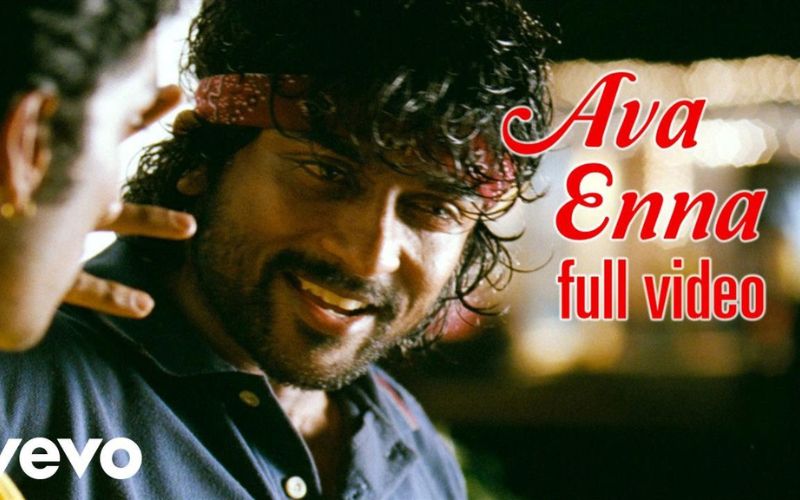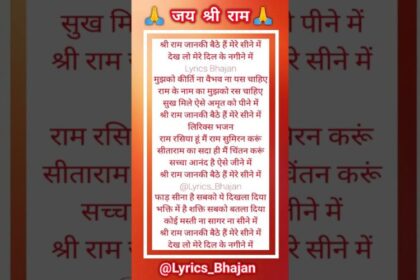“Ava Enna Enna Thedi Vantha Anjala” is a captivating and emotionally-charged song that has resonated with Tamil music enthusiasts for decades. This poetic masterpiece, penned by the renowned lyricist Vairamuthu, has become a beloved classic in the Tamil music landscape. The song’s haunting melody, combined with the depth and nuance of its lyrics, have made it a timeless treasure that continues to captivate audiences.
In this article, we will delve into the intricate tapestry of this song, exploring its lyrics, the emotions they convey, and the cultural significance that has cemented its place in the hearts of Tamil music lovers. Join us as we embark on a journey to unravel the beauty and poignancy of “Ava Enna Enna Thedi Vantha Anjala.”
Overview of the Lyrics
The lyrics of “Ava Enna Enna Thedi Vantha Anjala” are a testament to the power of words. Crafted with a masterful touch, the verses paint a vivid picture of a longing heart, a soul searching for its elusive mate. The lyrics are a tapestry of metaphors, imagery, and profound insights that resonate deeply with the listener.
The song’s opening lines set the tone, introducing the listener to the protagonist’s yearning:
“Ava enna enna thedi vantha anjala, Enna enna thedi vantha anjala?”
These lines translate to “What was the dove searching for, what was the dove searching for?” and immediately draw the listener into the emotional landscape of the song.
As the lyrics unfold, the listener is taken on a journey of self-discovery, exploring the depths of human emotions and the universal experience of love, loss, and the quest for connection.
Analysis of the Meaning and Emotions Conveyed in the Lyrics
The lyrics of “Ava Enna Enna Thedi Vantha Anjala” are rich in metaphor and symbolism, conveying a tapestry of emotions that resonate with the listener on a deep level.
The use of the dove (anjala) as a central figure is a powerful symbol, representing the fragility and purity of the human heart. The dove’s search, mirroring the protagonist’s own quest, evokes a sense of vulnerability and longing that is palpable throughout the song.
The lyrics also explore the theme of separation and the pain of lost love. Lines like “Enna enna thedi vantha anjala?” (What was the dove searching for?) and “Kanavil kanden, kanavil kanden” (I saw it in a dream, I saw it in a dream) suggest a sense of elusive and fleeting connection, a love that has slipped away, leaving the protagonist to grapple with the ache of its absence.
Woven throughout the song are moments of introspection and self-reflection, as the protagonist grapples with the complexities of the human experience. The lyrics delve into the universal questions of identity, purpose, and the search for meaning, inviting the listener to ponder their journey of self-discovery.
Notable Features and Highlights of the Song
“Ava Enna Enna Thedi Vantha Anjala” is a masterpiece of Tamil music, boasting several notable features and highlights that contribute to its enduring appeal:
- Poetic Brilliance: The lyrics, penned by the acclaimed lyricist Vairamuthu, are a testament to his mastery of the Tamil language. The verses are rich in imagery, metaphor, and poetic devices that elevate the song to a level of literary excellence.
- Haunting Melody: The music, composed by the legendary Ilaiyaraaja, is a perfect complement to the lyrics. The haunting, melancholic melody perfectly captures the emotions conveyed in the song, creating a powerful and evocative listening experience.
- Emotive Rendition: The song’s impact is further heightened by the captivating vocal performance of the late Mano. His soulful interpretation, infused with raw emotion, brings the lyrics to life and resonates deeply with the listener.
- Cultural Significance: “Ava Enna Enna Thedi Vantha Anjala” has transcended the boundaries of music and become a cultural touchstone in Tamil society. The song’s themes of love, loss, and the search for meaning have resonated with generations of listeners, cementing its place as a beloved classic.
- Timeless Appeal: Despite its age, the song continues to captivate and inspire new generations of listeners. Its universal themes and poetic brilliance ensure that “Ava Enna Enna Thedi Vantha Anjala” remains a timeless masterpiece, cherished by Tamil music enthusiasts around the world.
The History and Background of the Song
“Ava Enna Enna Thedi Vantha Anjala” was first featured in the 1983 Tamil film “Mouna Ragam,” directed by Mani Ratnam. The film, a critical and commercial success, was renowned for its poignant exploration of the complexities of human relationships and the search for emotional fulfillment.
The song’s lyrics, penned by the acclaimed lyricist Vairamuthu, were a perfect fit for the film’s themes. Vairamuthu’s masterful use of metaphor and imagery, combined with his deep understanding of the human experience, helped to elevate the song to a level of literary and emotional depth.
The music for “Ava Enna Enna Thedi Vantha Anjala” was composed by the legendary Ilaiyaraaja, who is widely regarded as one of the most influential and prolific composers in the history of Indian cinema. Ilaiyaraaja’s haunting and melancholic melody, with its intricate interplay of instruments, perfectly complemented the song’s poetic lyrics and helped to create a truly captivating listening experience.
The song’s vocal performance, delivered by the late Mano, was a crucial component of its success. Mano’s emotive and soulful rendition, infused with a raw and vulnerable quality, brought the lyrics to life and resonated deeply with the audience.
The combination of Vairamuthu’s poetic brilliance, Ilaiyaraaja’s musical mastery, and Mano’s powerful vocals resulted in a timeless classic that has since become an integral part of Tamil cultural heritage.
Popular Renditions and Covers of the Song
“Ava Enna Enna Thedi Vantha Anjala” has become a beloved classic in the Tamil music landscape, inspiring numerous renditions and covers over the years. While the original version, featuring Mano’s iconic vocals, remains the most well-known and cherished, several other artists have put their own unique spin on the song, further cementing its status as a timeless treasure.
One notable cover is the version recorded by the acclaimed singer Sid Sriram. Sid’s interpretation, with its soulful and emotive delivery, has been widely praised by fans and critics alike, showcasing the versatility and enduring appeal of the song.
Another popular rendition is the live performance by the renowned singer Shreya Ghoshal, who has captivated audiences with her powerful and heartfelt rendition of “Ava Enna Enna Thedi Vantha Anjala.” Ghoshal’s rendition has been widely shared and celebrated on social media, further expanding the song’s reach and popularity.
The song has also been covered by various instrumental artists, who have reinterpreted the melody in unique and creative ways. These instrumental versions, which showcase the song’s inherent musical brilliance, have also found a dedicated following among music enthusiasts.
The proliferation of these diverse renditions and covers is a testament to the enduring legacy of “Ava Enna Enna Thedi Vantha Anjala.” Each interpretation, whether vocal or instrumental, adds a new layer of depth and nuance to the song, ensuring its continued relevance and appeal to audiences across generations.
The Impact and Reception of “Ava Enna Enna Thedi Vantha Anjala”
“Ava Enna Enna Thedi Vantha Anjala” has had a profound and lasting impact on the Tamil music landscape, cementing its place as a beloved classic that has transcended the boundaries of time and genre.
The song’s initial release in the 1983 film “Mouna Ragam” was met with critical acclaim and overwhelming audience reception. The haunting melody, coupled with the depth and poignancy of the lyrics, struck a chord with listeners, who found themselves captivated by the emotional journey the song evoked.
In the years since its release, “Ava Enna Enna Thedi Vantha Anjala” has continued to resonate with successive generations of Tamil music enthusiasts. The song’s enduring popularity is a testament to its timeless appeal, as it continues to be celebrated, shared, and cherished by fans across the globe.
The song’s cultural impact extends beyond the realm of music, as it has become a touchstone for Tamil identity and heritage. The lyrics’ exploration of universal themes like love, loss, and the search for meaning have resonated with audiences, making the song a beloved part of Tamil cultural fabric.
The widespread acclaim and recognition for “Ava Enna Enna Thedi Vantha Anjala” have also cemented the legacies of the artists involved in its creation. The song’s success has solidified the reputations of lyricist Vairamuthu, composer Ilaiyaraaja, and singer Mano, who are all revered as titans of Tamil music.
In the annals of Tamil music history, “Ava Enna Enna Thedi Vantha Anjala” stands as a timeless masterpiece, a testament to the power of art to transcend the boundaries of time and touch the hearts of countless individuals.
Exploring the Cultural Significance of the Song
“Ava Enna Enna Thedi Vantha Anjala” is not merely a captivating musical composition; it is a cultural touchstone that has become deeply embedded in the fabric of Tamil society. The song’s enduring popularity and the profound emotional resonance it elicits from listeners are a testament to its cultural significance.
At the heart of the song’s cultural impact is its exploration of universal human experiences and emotions. The themes of love, loss, and the search for meaning that permeate the lyrics resonate with people of all backgrounds, transcending the boundaries of language and culture.
The use of the dove (anjala) as a central symbol in the song is particularly significant, as it taps into the rich cultural and literary tradition of Tamil poetry. The dove, with its associations of purity, fragility, and longing, has long been a beloved motif in Tamil art and literature, making the song’s imagery instantly relatable and evocative for Tamil audiences.
Moreover, the song’s poetic brilliance, with its masterful use of metaphor and imagery, has cemented its status as a work of literary merit. The lyrics, crafted by the acclaimed lyricist Vairamuthu, are revered for their depth, nuance, and ability to capture the complexities of the human experience.
The cultural significance of “Ava Enna Enna Thedi Vantha Anjala” extends beyond its artistic merits, as the song has also become a touchstone for Tamil identity and heritage. The song’s enduring popularity and the emotional resonance it evokes have made it a beloved part of the Tamil cultural fabric, a shared experience that connects generations of listeners.
In the context of Tamil cinema, the song’s inclusion in the critically acclaimed film “Mouna Ragam” has further solidified its cultural importance. The film’s exploration of the complexities of human relationships and the search for emotional fulfillment has become inextricably linked to the song, making it a poignant and powerful reflection of Tamil cultural sensibilities.
As we delve deeper into the cultural significance of “Ava Enna Enna Thedi Vantha Anjala,” it becomes clear that the song’s impact extends far beyond the realm of music, serving as a powerful cultural artifact that continues to captivate and inspire Tamil audiences around the world.
Translating the Lyrics and Understanding the Nuances
To fully appreciate the depth and beauty of “Ava Enna Enna Thedi Vantha Anjala,” it is essential to explore the nuances and layers of meaning within the lyrics. The song’s poetic brilliance, crafted by the renowned lyricist Vairamuthu, is a testament to the richness and complexity of the Tamil language.
When translated into English, the lyrics of “Ava Enna Enna Thedi Vantha Anjala” reveal a tapestry of metaphors, imagery, and emotional resonance that transcend the boundaries of language. The opening lines, “Ava enna enna thedi vantha anjala, Enna enna thedi vantha anjala?” (What was the dove searching for, what was the dove searching for?), immediately set the tone of the song, introducing the listener to the protagonist’s yearning and the central metaphor of the dove.
As the lyrics unfold, the listener is taken on a journey of self-discovery, exploring the depths of human emotions and the universal experience of love, loss, and the quest for connection. The use of the dove as a symbol of purity and fragility becomes a poignant reflection of the protagonist’s own vulnerability and the fragility of the connection they seek.
Phrases like “Kanavil kanden, kanavil kanden” (I saw it in a dream, I saw it in a dream) and “Nee enna thedi vantha anjala” (What were you searching for, dove?) convey a sense of elusive and fleeting connection, a love that has slipped away, leaving the protagonist to grapple with the ache of its absence.
The lyrics also delve into the realm of introspection and self-reflection, as the protagonist grapples with the complexities of the human experience. Lines like “Naan enna thedi vantha anjala” (What was I searching for, dove?) and “Naan enna thedi vantha anjala” (What was I searching for, dove?) invite the listener to ponder their journey of self-discovery and the universal questions of identity, purpose, and the search for meaning.
By exploring the nuances and layers of meaning within the lyrics, the reader gains a deeper appreciation for the emotional depth and poetic brilliance of “Ava Enna Enna Thedi Vantha Anjala.” The song’s ability to transcend the boundaries of language and culture, touching the hearts of listeners across generations, is a testament to the power of art to capture the complexities of the human experience.
Conclusion
“Ava Enna Enna Thedi Vantha Anjala” is a timeless masterpiece that has left an indelible mark on the hearts and minds of Tamil music enthusiasts. From its haunting melody and poetic brilliance to its profound exploration of universal human experiences, this song has become a beloved classic that continues to captivate and inspire audiences across generations.
As we have explored the various facets of this musical treasure, it is clear that “Ava Enna Enna Thedi Vantha Anjala” is more than just a song; it is a cultural touchstone that has become deeply embedded in the fabric of Tamil identity and heritage. The song’s ability to resonate with listeners on a deep, emotional level is a testament to the power of art to transcend the boundaries of language and culture.
Personally, the experience of delving into the intricacies of this song has been a profound and enriching one. The lyrics’ exploration of love, loss, and the search for meaning have struck a chord within me, reminding me of the universal human experiences that connect us all. The song’s haunting melody and the emotive rendition of Mano have left an indelible mark on my soul, evoking a sense of melancholy and introspection that lingers long after the final notes have faded.
As I reflect on the legacy of “Ava Enna Enna Thedi Vantha Anjala,” I am struck by the profound impact it has had on the Tamil music landscape and the cultural landscape as a whole. The song’s enduring popularity and the reverence with which it is held by audiences are a testament to its timeless appeal and the enduring power of art to touch the human spirit.
In the end, “Ava Enna Enna Thedi Vantha Anjala” stands as a shining example of the transformative power of music, a testament to the ability of art to capture the complexities of the human experience and to transcend the boundaries of time and space. As I bid farewell to this captivating exploration, I am left with a renewed appreciation for the beauty and depth of this truly remarkable song.
If you’ve enjoyed this deep dive into the lyrics and cultural significance of “Ava Enna Enna Thedi Vantha Anjala,” be sure to check out our other articles exploring the rich tapestry of Tamil music. Our team of experts is dedicated to uncovering the hidden gems and timeless classics that have shaped the musical landscape of this vibrant culture. Stay tuned for more insightful articles that will transport you to the heart of Tamil musical traditions.
In the meantime, we encourage you to immerse yourself in the beauty of “Ava Enna Enna Thedi Vantha Anjala” and let its haunting melodies and poetic lyrics captivate your senses. Whether you’re a longtime fan or a newcomer to the world of Tamil music, this song is sure to leave an indelible mark on your heart and soul.
As you continue your journey of discovery, remember that the true power of music lies in its ability to connect us, transcend the boundaries of language and culture, and touch the very essence of our shared human experience. So, let the enchanting notes of “Ava Enna Enna Thedi Vantha Anjala” be your guide, and let it inspire you to explore the rich tapestry of Tamil musical heritage.





